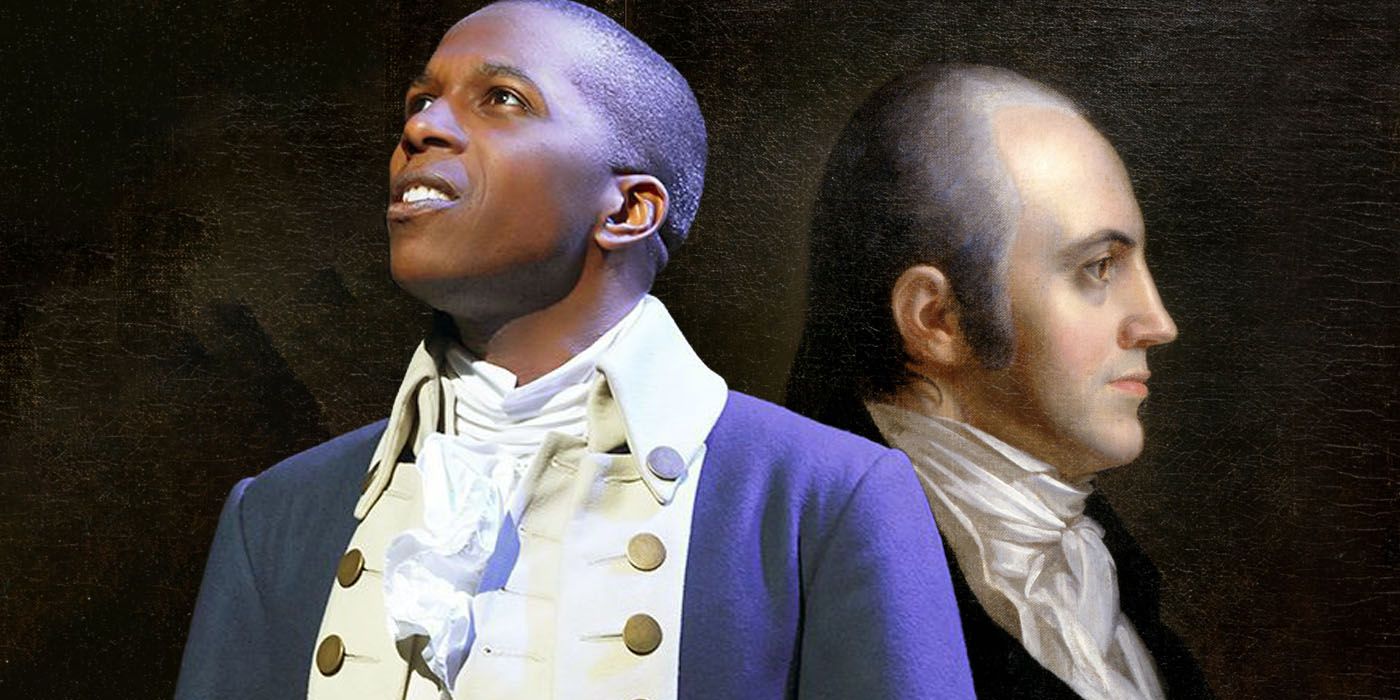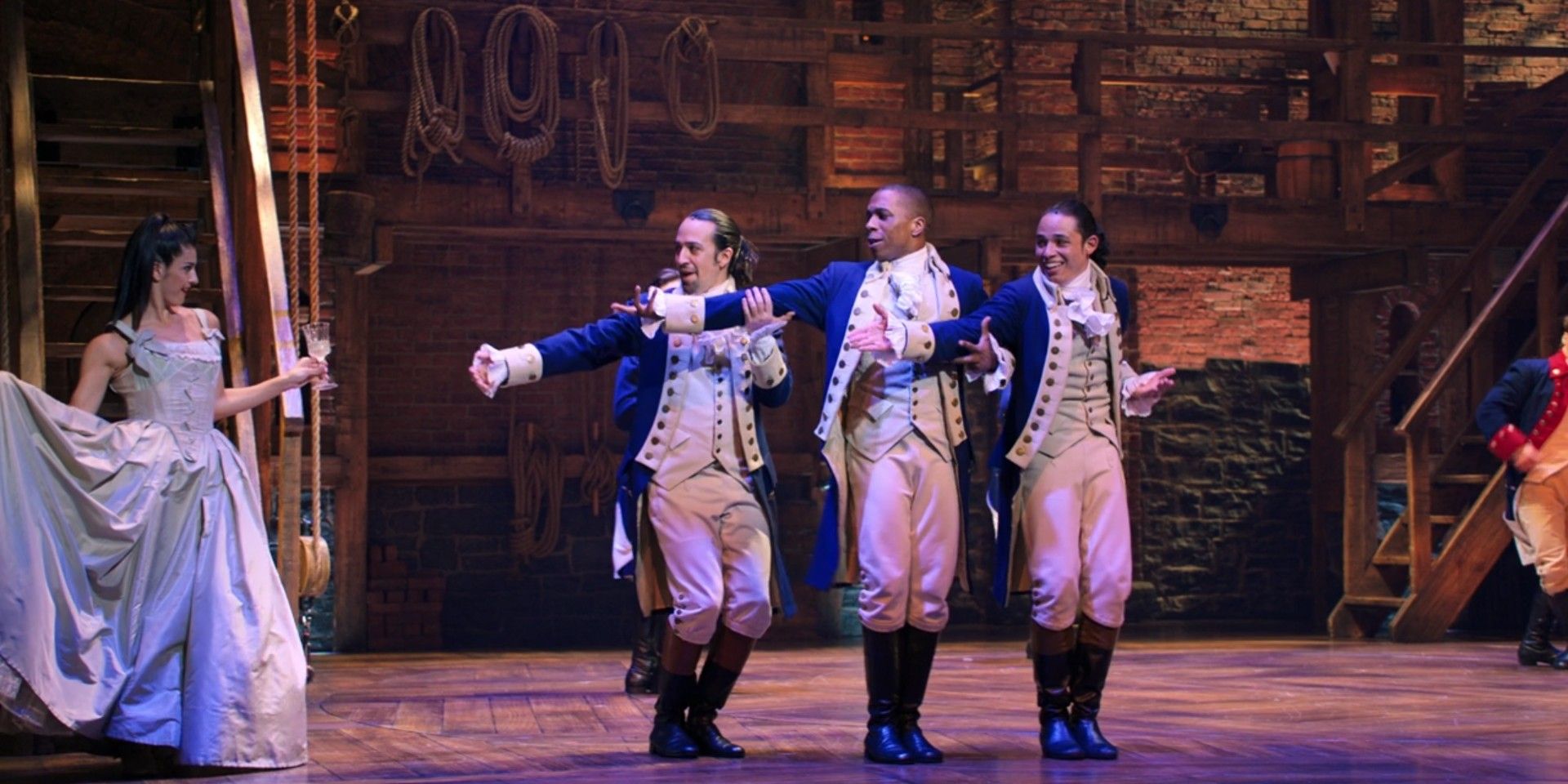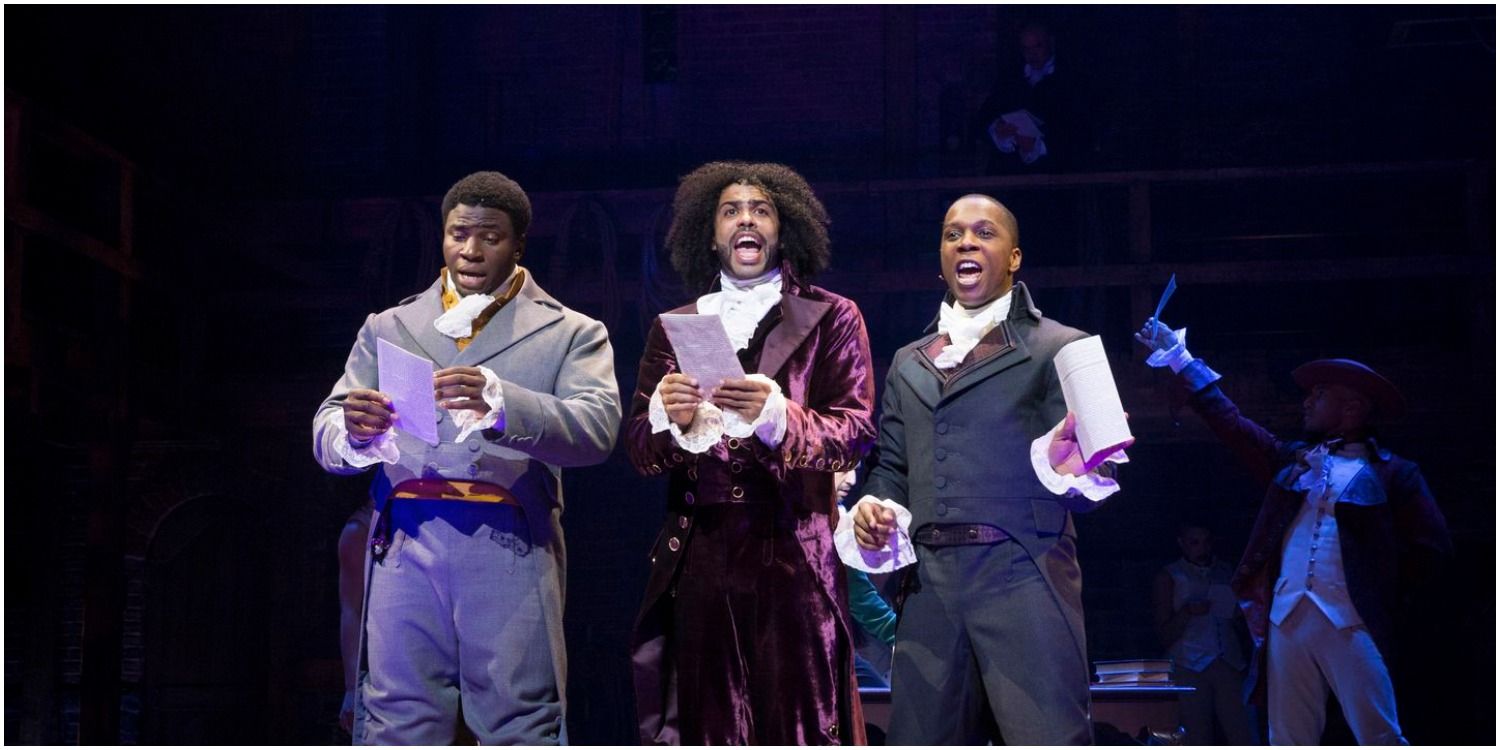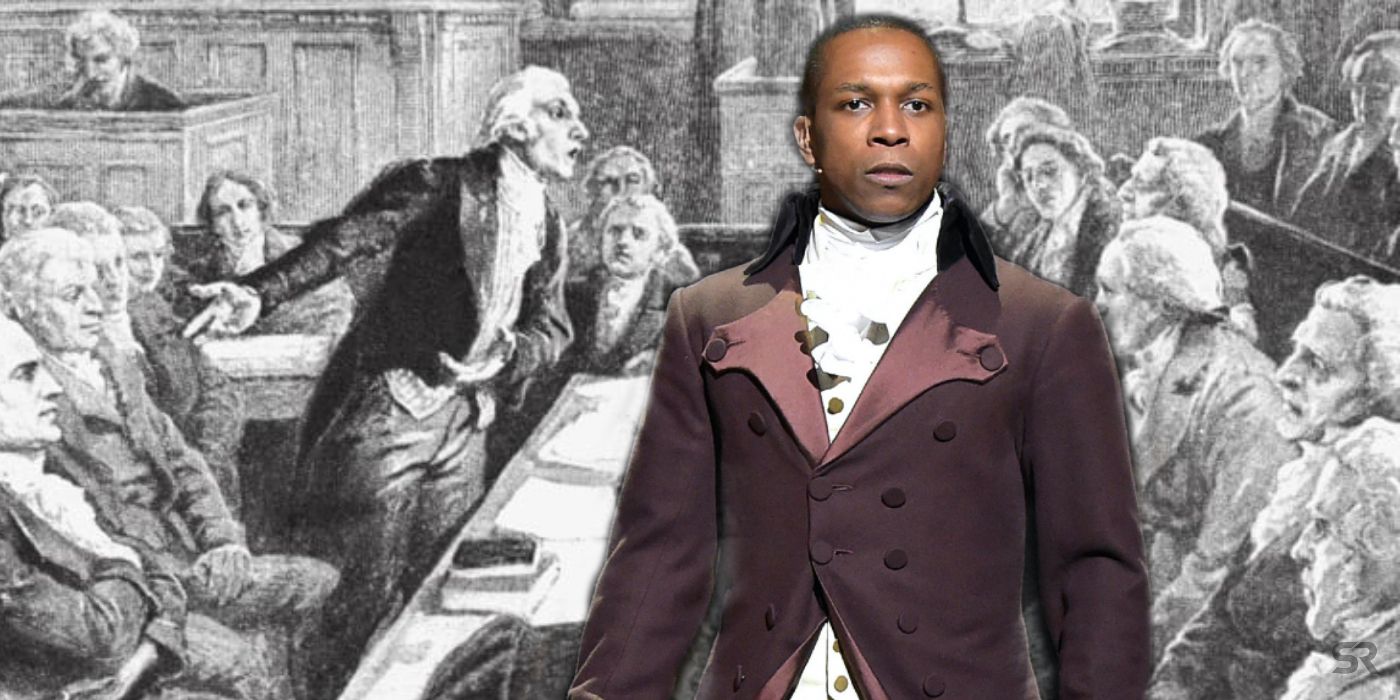Lin-Manuel Miranda's Hamilton puts forth an intriguing and complicated depiction of Aaron Burr. Too calculating to be a hero but not malevolent enough to be a villain, Burr doesn't neatly fit into any boxes. Even when Burr kills Hamilton in a duel, he still seems forgivable. But how similar is the character Aaron Burr to his real-life counterpart?
Hamilton's historical accuracy has been widely debated among both historians and fans. Like many works of art based on history, Hamilton takes many creative liberties. For the most part, these alterations pay off: Miranda is able to tell the story in a smooth, efficient, and impactful manner. However, these changes make the play somewhat unreliable as a historical source — and Hamilton's portrayal of Burr is no exception.
As complex and contradictory as Hamilton's Burr seems, the real Burr is even more inconsistent. There are several relatively minor inaccuracies and omissions in Hamilton; for example Burr didn't feel nearly as guilty about Hamilton's death as the play portrays. The events of the show may seem significant, but they pale in comparison to some of the other dramas he experienced. Let's break down everything major that Hamilton left out about Aaron Burr.
Burr Was Somewhat of A Feminist
Hamilton never delves into this topic, but Miranda describes Burr as an "ardent feminist." Burr may not measure up to today's standards of gender equality, but he was certainly ahead of his time. After marrying Theodosia - the wife of the British officer Burr mentions in "The Story of Tonight" - Burr began to see women as equal to men. According to Burr himself, Theodosia helped him become cognizant of women's intellectual potential. With this newfound awareness, Burr became dedicated to providing his daughter, also named Theodosia, with a quality education.
Burr maintained that Theodosia's education must be gender-neutral, or else it would severely limit her intellectually. His commitment to Theodosia's education bordered on obsessive, and he ultimately found her tutors that would give him the results he desired. Theodosia's math tutor, Michael Martin, explained Burr's beliefs: "Women, whatever may be said, are capable of the same kind of genius as men." Burr thought that it was possible for Theodosia, and women in general, to "avenge your sex of the conceit as well as the tyranny of laws and conventions that enchain women within a bastion of ignorance."
Not only was Burr supportive of women's education, but he also liberated women in other capacities. For example, he was the divorce attorney of Maria Reynolds - the woman Hamilton had an affair with in "Say No To This" - at a time when divorce was highly stigmatized. Although Burr never self-identified as a feminist, his consistent support of women's freedom renders Miranda's description genuine.
Burr Had A Complicated Relationship With Slavery
Hamilton discusses slavery intermittently, but never in relation to Burr. Perhaps this omission is due to the fact that Burr's connection to slavery was too complex to summarize in just a few lines. Burr's parents and grandparents died when he was a toddler, and from that point on, slavery was not a part of his life. When he served in the Revolutionary War, he fought alongside many free black soldiers - an experience that may have shaped his view of race and slavery. But when he married Theodosia, he inherited her late husband's slaves.
At this point, Burr joined the ranks of Hamilton and many others who participated in slavery while also arguing against it. He provided his slaves with a quality education and even had one learn to play the violin, but never freed them. In a contradictory move, Burr offered a bill proposing that all slavery in the United States would immediately end. The bill was rejected in favor of another that would gradually end slavery while restricting the rights of Black Americans - a bill that Burr opposed due to these restricted rights. Ultimately, neither bill passed.
Burr's connection to slavery is marked by contradictions. He supported the immediate emancipation of all slaves, but owned slaves himself and chose not to emancipate them. He was more vocally anti-slavery than Hamilton was, but was also more involved with it as an institution. In this regard, Hamilton's Burr seems accurate, in that he is just as elusive as the real Burr.
Burr Might Have Committed Treason
Burr may actually have been at the center of a conspiracy against the United States. In 1804, Burr's career and reputation were dilapidated - Jefferson got rid of him as Vice President, and he potentially faced murder charges for Hamilton's death. Historians know that Burr tried to raise an army on the western American frontier, but they are uncertain of why. One dominant theory is that he was planning on starting a new nation in the west and declaring himself emperor.
Burr contacted a British foreign minister, who sent word to London that Burr was willing "to lend his assistance to His Majesty's Government in any manner in which they may think fit to employ him, particularly in endeavoring to effect a separation of the Western part of the United States from that which lies between the Atlantic and the mountains." Although Britain never replied, Burr continued with his scheme, spending the next few years acquiring allies, funds, and troops. Burr's plan came crashing down when his ally, General Wilkinson, betrayed him by exposing his plans to President Jefferson.
Jefferson called for Burr's arrest, and Burr was captured in March of 1807 and charged with treason. Burr was ultimately found not guilty, but this verdict did not sway public opinion. With his reputation destroyed, Burr moved to Europe for several years. In all of American history, Burr is the only major politician who has ever been tried for treason.
Burr's life outside of Hamilton may be more exciting and drama-filled than his life in Hamilton - but much of this information was left out for good reason. Burr's views on gender equality and slavery might have had a place in Hamilton, but his treason case took place after the events of the play. Even if Miranda were to find some way around this chronology issue, the conspiracy would not have worked as part of the overall narrative; Burr would have overshadowed Hamilton and become the main character.
Hamilton's statement that "Jefferson has beliefs. Burr has none," seems to be both true and untrue to the real Burr. His commitment to gender equality indicates that he does have some principles, but his faltering stance on slavery would put him in line with Hamilton's description. Meanwhile, his willingness to commit treason certainly seems contrary to Hamilton's characterization of him as restrained and hesitant. What does seem to line up is that the real Burr was just as morally ambiguous and enigmatic as he was in the musical. It's little wonder that Hamilton tells him, "I will never understand you."




